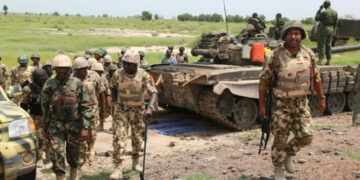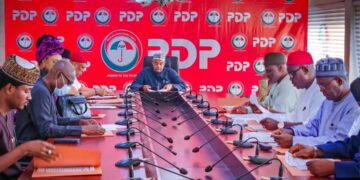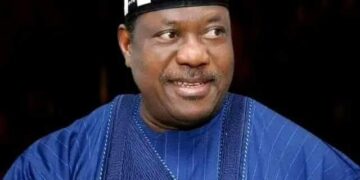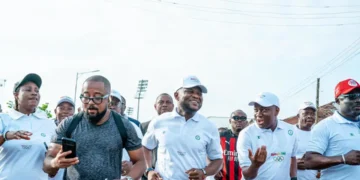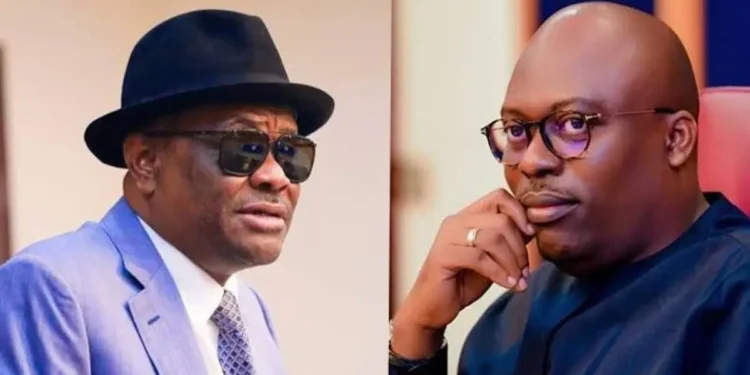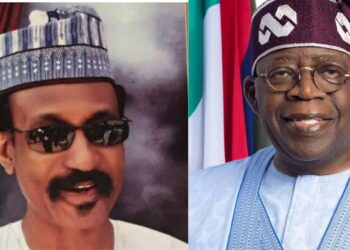“Peace cannot be kept by force. It can only be achieved by understanding” – Albert Einstein
In the biblical parable of the Prodigal Son as recorded in the Gospel of Luke, we find a story of rebellion, estrangement, and, ultimately, reconciliation. A son, having squandered his inheritance, returns home humbled, hoping only for forgiveness. Instead, he finds open arms, a feast, and restoration. Today, in the unfolding political saga of Rivers State, we witness a similar tale—a narrative of political fallout, estranged allies, and the tentative steps toward reunion.
The recent meeting between Governor Siminalayi Fubara and his predecessor, Minister of the Federal Capital Territory Chief (Barr.) Nyesom Wike, as reported in EMTV News’s April 30, 2025 article “Fubara and Wike Seek Unity Amid Political Turmoil,” marks a significant chapter in this modern parable. Governor Fubara, accompanied by governors and political statesmen from across Nigeria—including Ebonyi State Governor Francis Nwifuru, Ogun State Governor Dapo Abiodun, and former Governor Olusegun Osoba—visited Wike at his private residence, signaling a potential reconciliation long hoped for.
As political analyst Obiarukwe Ndukwe noted, Fubara didn’t enter Wike’s home as a stranger. He walked into a place he knew well—Wike’s living room—a room that had once symbolized camaraderie and shared vision. That symbolism cannot be overstated. The familiarity of that room mirrors the deep political and personal history between the two men.
Wike, the political father who championed Fubara’s rise, had become estranged from his “son,” yet the very act of returning was a powerful gesture, one that resonates deeply with our collective understanding of forgiveness and unity.
Peace as the Foundation for Progress
This gesture comes at a crucial time. The declaration of a state of emergency in Rivers State by President Bola Tinubu on March 18, 2025, underscored how dire the political situation had become. Calls for war, borne out of frustration with the sole administrator’s alleged misdeeds—ranging from exclusionary governance, undermining democratic institutions, and public provocation—still echo in some quarters. However, as a nation, Nigerians have responded positively to initiatives for peace, drawing from the large amount of positive feedback to my previous article “Need for calm in navigating the Rivers maelstrom” that was published in The Nation newspaper of Tuesday, April 29, 2025 on page 23. We must recognize that peace is the bedrock of development, democracy, and coexistence.
Even those who have previously called for resistance must now see the bigger picture. We must ask: will more conflict restore dignity, or will dialogue and unity secure a better future? Rivers State cannot afford to be defined by internal strife, especially given its strategic importance to Nigeria’s socio-economic framework. The state’s relevance extends far beyond oil and gas production. It is a nexus of national infrastructure, linking Bayelsa, Delta, Akwa Ibom, Imo, and Abia States, and is home to critical energy pipelines and the NLNG plant. Political instability in Rivers State is not a local issue — it has national consequences.
A Personal Perspective
As someone deeply embedded in the Rivers political landscape, I have seen both sides up close. I have dined in Wike’s home countless times. I chaired the 2024 reception hosted in Omoku by Chief Felix Obuah in Wike’s honor. I even co-authored a book, Against All Odds, chronicling Wike’s political journey. My connection with his camp is personal—I know 70% of his core supporters and 30% of those in the governor’s camp. Yet, despite my close ties, I desire only one thing: peace and the return of democracy to the people of Rivers State.
At the onset of the Ukraine war in February 2022, I drew from my experience of having lived in Kyiv for twelve years and have been a constant visitor to the country for the past three decades, I initiated some high level conversations. In conversations with Ukrainian officials—governors, ministers, generals, and even the presidency—I cautioned them about the cost of war.
I said: Yes, Russia attacked you, but two wrongs do not make a right. I warned that the war would be fought solely on Ukrainian soil, and the cost would be borne by Ukrainians alone.
I told them not to put their complete faith in the West. Even if the West supported them to the very end:
- They would lose their sovereignty in the form of lasting indebtedness.
- Their country would be reduced to rubble.
- And, as history teaches, no one truly wins in war.
This same wisdom must guide us now. I desire peace. I prefer democracy. I want Rivers State to thrive.
The Role of Mediators
I previously suggested that President Goodluck Jonathan should mediate this dispute. Unfortunately, some in Wike’s camp interpreted a statement he made in Port Harcourt as a sign of bias. That is far from the truth. President Jonathan is neutral and remains uniquely positioned to mediate this conflict. A Niger Delta son himself, President Jonathan has the temperament, relationships, and respect to guide this reconciliation. Let us look inward to resolve this political standoff. This is a father-and-son quarrel—one we can mediate ourselves. His voice, alongside that of the church, civil society, and statesmen like Bishop Hassan Kukah, should be part of this national healing.
As for me, I remain ready to support this process—not just symbolically but practically, helping with outreach and drafting communication strategies to reach the camps’ stakeholders. I am confident others who love Rivers State are willing to join.
Reframing the Conflict: A Misunderstanding, Not a War
Let us stop labeling this as a political war. Let us call it what it truly is: a misunderstanding between a father and son. Wike, who played a pivotal role—90% by some estimates—in bringing Fubara to power, should be acknowledged for his foundational role. But leadership now requires grace and perspective. Wike must not, out of anger, throw the baby out with the bathwater. Nor should he allow provocations from others to derail reconciliation. His “son” has come back. Let the father welcome him.
For reconciliation to work, it cannot come through insults, chest-thumping, or online grandstanding. It will come through deliberate humility and behind-the-scenes efforts like the recent meeting that sparked this new hope.
A Way Forward
As a member of the Energy Security Working Group under the Office of the National Security Adviser, I have seen firsthand the Federal Government’s renewed commitment to completing the East-West Road. I must acknowledge the commendable role of Mallam Nuhu Ribadu, the National Security Adviser, who, through his leadership, is doing everything within his power to coordinate the protection of national assets in the Niger Delta. His tacit but determined efforts to restore peace in the region deserve recognition. For the first time in four years, there is hope that under President Tinubu, the long-abandoned East-West road project may be completed. This shows that when leaders unite, tangible results follow.
Our objectives are clear:
- Rivers State is too strategic to be consumed by internal conflict.
- No one truly wins in a political war.
- Our people have been sidelined in the dividends of democracy.
- The actions of the sole administrator undermine democratic principles.
This is not a fight—it is a family matter that requires reconciliation, not retaliation.
Let us join well-meaning Nigerians to appeal to both Wike and President Tinubu to bring the governor and state legislators home. Let democracy return. Let Rivers State regain its footing and lead again as the heartbeat of the Niger Delta.
The prodigal son has returned. Now, let the father embrace him, and let us all partake in the feast of peace and unity.
“….Nobody wins when the family feuds.” – Corey Ponder.



